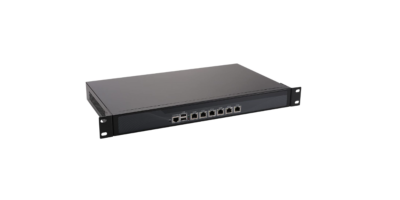Mobile devices have become an integral part of healthcare practices, allowing healthcare providers to access patient data and provide care from anywhere at any time. However, the use of mobile devices in healthcare also poses significant security risks, especially when it comes to protecting sensitive patient information. The Health Insurance Portability and Accountability Act (HIPAA) provides guidelines and regulations that healthcare organizations must adhere to in order to ensure the confidentiality, integrity, and availability of electronic protected health information (ePHI). In this blog post, we will discuss five tips for ensuring HIPAA compliant mobile devices.
HIPAA Compliance and Mobile Devices: Ensuring Data Security
As healthcare technology advances, mobile devices have become an essential tool for healthcare providers to access patient information on-the-go. However, these devices can also pose a risk to patient privacy if they are not properly secured and managed in compliance with the Health Insurance Portability and Accountability Act (HIPAA). Here are five tips for ensuring HIPAA compliance on your mobile devices:
Tip #1: Implement Strong Password Policies
One of the simplest ways to ensure HIPAA compliant mobile devices is to implement strong password policies. Passwords should be complex, contain a combination of upper and lowercase letters, numbers, and special characters. They should also be changed frequently to prevent unauthorized access. Mobile devices should also be set to automatically lock after a certain period of inactivity to prevent unauthorized access.
Tip #2: Use Encryption
Encryption is a powerful tool that can help protect sensitive patient information stored on mobile devices. Encryption is the process of converting data into a code that can only be deciphered with a specific key or password. Mobile devices should be encrypted to ensure that sensitive patient information cannot be accessed by unauthorized individuals.
Tip #3: Install Anti-Malware Software
Mobile devices are susceptible to malware attacks, which can compromise sensitive patient information. Installing anti-malware software can help prevent malware infections and protect mobile devices from security breaches. Healthcare organizations should also regularly update their anti-malware software to ensure maximum protection.
Tip #4: Implement Remote Wiping Capabilities
In the event of a lost or stolen device, healthcare organizations should have a plan in place to remotely wipe any sensitive patient information from the device. Remote wiping capabilities enable an organization to quickly and easily delete data from a mobile device if needed. This helps ensure patient data is not compromised due to an unsecured device.
Tip #5: Train Employees on HIPAA Compliance
Finally, healthcare organizations must ensure that all employees are trained on HIPAA compliance. Employees should be aware of the risks associated with mobile devices and understand how to protect sensitive patient information. This includes knowing how to properly use passwords, encryption, anti-malware software, and remote wiping capabilities.
Conclusion
Mobile devices have become an essential tool in healthcare practices, but they also pose significant security risks. Healthcare organizations must ensure that they are HIPAA compliant to protect sensitive patient information. Implementing strong password policies, using encryption, installing anti-malware software, implementing remote wiping capabilities, and training employees on HIPAA compliance are all critical steps in ensuring HIPAA compliant mobile devices. By taking these steps, healthcare organizations can improve the security of their mobile devices and protect sensitive patient information from unauthorized access and breaches.
How MedicalITG Help Healthcare Organizations Ensure HIPAA Compliance
MedicalITG is a leading medical technology and IT consulting firm that specializes in helping healthcare organizations become and remain HIPAA compliant. Our team of experts has the experience and expertise to help healthcare organizations develop robust security policies, implement secure network infrastructure, provide staff training, and more. Contact us today to learn how we can help your organization ensure HIPAA compliance on mobile devices.
Source: https://www.securitymetrics.com/learn/hipaa-compliant-mobile-devices










